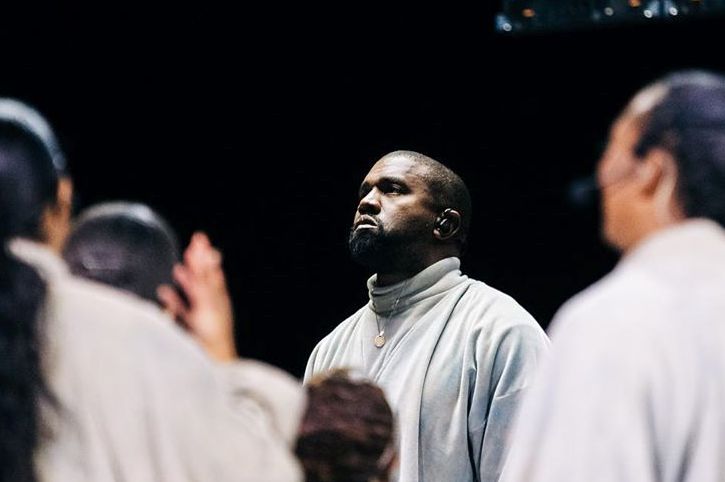This article contains multiple excerpts from The Handbook of Religion and Health, The National Center for Biotechnology Information, Roland Berger, Psychiatric Times, and Harvard Business Review. The research looks at the effects of religion and spirituality on mental well-being and the success of an entrepreneur.
My Experience
I grew up agnostic for most of my life; however, I learned to pray and practice gratitude. As I got older, my relationships and experiences inspired me to shift my views on religion. While I could not identify with a particular God, believing in a higher power and embracing faith has enhanced all aspects of my life. Today, I consider myself a spiritual being, and I associate my religion with a form of Deism. Deism is when you believe human beings should be free to find, know, and worship God in their own way. It is inclusive of different religious backgrounds and believes that the best form of worship is to do good for others. A common saying in Deism goes, ‘God gave us a purpose, not a religion.’
In a spiritual sense, all things are designed to be the way they were intended—perfectly imperfect. Although no religion is flawless, I have always believed that so long as it does not harm or oppress others’ views, it is incredibly beneficial. This hypothesis was derived mainly from my personal experiences.
Two years ago, I met with a local Real Estate agent in Accra, Ghana, who was struggling financially. He had been working long hours to support his family and would spend his free time in the hospital to visit his father, who was on his deathbed—plagued with a terminal illness. Despite his adversities, our conversation was very uplifting and inspiring. He spoke of his faith in God and his greater purpose in life and not even once complained about any of the things going wrong for him. It was difficult for me to understand how a person in his situation could be so optimistic. An economist in 2012 reported that self-reported levels of happiness were higher in poor and middle-income countries than in rich ones. Perhaps they obtain certainty and comfort in faith?

I have come across numerous individuals like him who, despite being misfortunate, they are faithful in God and their purpose in life. As a result, they are happy with their current situation and optimistic about their future. Experiences such as this led me to question how much religion plays a role in one’s happiness. Since business is my passion, I also look into the effect of religion on entrepreneurs.
Religious Trends And Forecast
The religious profile of the world is rapidly changing. If trends continue, then by 2050, Christianity will remain the largest religious group, but Islam will grow faster than any other major religion. In the United States, Christians (USA’s dominant religion) will decline from more than three-quarters of the population in 2010 to two-thirds in 2050.[1]
The History of Religion And Psychiatry
Before we move further, lets first clarify some key terms for this topic:
Religion is defined as “an organized system of beliefs, practices, rituals, and symbols designed to facilitate closeness to the sacred or transcendent (God, higher power, or ultimate truth/reality).”
Spirituality is defined as “the personal quest for understanding answers to the ultimate questions about life, about meaning, and about relationship with the sacred or transcendent, which may or may not lead to or arise from the development of religious rituals and the formation of a community.”
Agnostic is defined as “a person who claims neither faith nor disbelief in God.”
Atheism is the “disbelief or lack of belief in God.”
Secular refers to “attitudes, activities, laws, or ideas that have no religious basis.”
Psychiatry and religion have been interrelated dating back to the early 19th century when religious institutions used to be responsible for the mentally ill’s care. In the medieval ages, most mental disorders were considered witchcraft or demonic possession, and people did not regard natural causes.

The scientific revolution of the 17th century and the social and intellectual fermentation of the 18th century developed changes that refined our understanding of mental illness. It wasn’t until the 20th century that psychiatry nullified the concept of religious insanity.
Despite our rich history ties between religion and psychiatry, we still lack considerable research on religion’s effects on one’s mental health. While religion has been a proven effective prevention method for mental health disorders, less is known about using religion as a treatment of formal mental health care or how the different levels of religiosity/religion type alter the effects. Additional research modifying these variables is needed to grasp an unabridged understanding of this topic.
Religion, Spirituality, And Mental Health
The Handbook of Religion and Health reported that “A large majority of the numerous studies investigating the relationship between religious involvement and mental and emotional well-being have found a positive association. In addition, many studies have also found that religious involvement is associated with a decreased likelihood of experiencing a mental health disorder. Further, studies of patients with diagnosed psychiatric disorders suggest that religious involvement and religious coping (prayer, reading inspirational literature, etc.) is associated with better mental health outcomes over time.”
Groups that focus on spirituality can lead to greater understanding of problems, feelings, and spiritual aspects of life.
Psychiatric Times

A separate study done by the National Center for Biotechnology Information (NCBI) tested how religion affects mental health. The 3 ways they defined religion are; strength of religious belief, religious participation, and spirituality, which refers to the subjective aspects of religious feeling and experience. They found that roughly a quarter of people turned to religious providers before seeking formal mental healthcare for their emotional and mental problems. This is important because religious providers represent a crucial entry point into the traditional mental health care system. Religious institutions facilitate treatment—sometimes involving factors that are not traditionally available in formal mental health treatment—by referring individuals to conventional mental health facilities. Since clergy hold positions of authority and are often held in high esteem, their advice was particularly influential. Religious institutions also sponsor and support other social services such as Catholic Family Services, Jewish Social Services, etc. where patients can pay according to an income-based fee schedule. Institutions also provide a safe space for prayer, opportunities for social interaction, pleasurable activities, financial assistance, and a sense of belonging.

Patients enrolled in a formal mental care facility even frequently use religion to cope with their distress. Randomized trials have indicated that religious interventions among religious patients enhance recovery from anxiety and depression.[2] Often, groups that focus on spirituality lead to a greater understanding of problems, feelings, and other spiritual aspects of life.
However, NCBI noted that the substitution of religious involvement for formal mental health care is most successful for those with moderate distress levels than those with high ones. Despite this fact, of those with serious mental illness (SMI), almost half have reported using religious providers as their sole source of care.
Of 93 observational studies, two-thirds found lower rates of depressive disorder with fewer depressive symptoms in persons who were more religious. In the cases where individuals had no change or greater depressive symptoms, religious delusions and/or manipulation were present indicating a malpractice of religion.
Psychiatric Times
NCBI’s data showed that religious institutions hold relative appeal as an alternative treatment for mental health. Some advantages include; convenience, effectiveness, lack of stigma, economic resources, the availability of providers in geographic proximity, one’s experiences with the treatment system, and external information obtained through conventional sources or learning through others’ experiences and opinions.

While the stresses, strains, and uncertainties of life can be easier tolerated by the believers, research implied the main downside to religion on mental health as the many outmoded rituals and belief systems that can hinder positive growth and may even lead to mental ill-health. For example, the guilt or anxiety triggered by a violation of religious rituals, whether willingly or unwillingly. A common guilt is the sexual desire admitted by individuals whose religion condemns sexual activity. To solve this, the NCBI suggested that “if religion has to fulfill the need for which it was generated it has to keep pace with modern times and technology. Only then it will serve the function of providing relief and succour to mankind.” Contrary to this, religious beliefs may provide solace to those who are fearful and anxious. This is an example of—as I mentioned earlier, the lack of extensive research on the topic and, as a result, occasionally having contradicting arguments and uncertainty on the matter as a whole.
Interestingly, despite clear evidence of religion contributing to healthy emotional and mental health practice, in the eyes of mental health professionals, religion is often seen in Western societies as irrational, outdated, and dependency forming and has been viewed to result in emotional instability.

Overall, research indicates that religious involvement is generally conducive to better emotional and mental health by supporting and promoting good mental health; however, its degree of effectiveness depends on a plethora of factors that can be difficult to measure. While it is not assured, the decline of religion may likely be contributing to the rise in populations with mental illness.[3] In its absence, people seek alternative theories of life and the universe—often conspiracy theories—particularly in these periods of uncertainty with COVID-19. Though, this does not mean that atheist and agnostic people are not happy. They may have an alternative system that brings them joy and contentment and their own form of faith. Traditional religions just happen to be the most established and widespread.
How It Affects Entrepreneurs
I have spent a lot of time studying successful entrepreneurs, and the one thing I found that every one of them has in common is a unique sense of self-awareness and confidence in their abilities. These traits alone give them the invaluable ability to be persistent, optimistic, hardworking, and stoic—all vital to reaching success in our extremely competitive world.
I mentioned earlier how we lack research on the effects of religion on mental health. This made delving into a more specific realm on the topic very difficult. Finding studies that looked at how religion affects entrepreneurship had fewer data and even more contradicting results.
One of the more promising studies I found was from Baylor University, which investigated the connection between faith and the propensity to start a business. They found that entrepreneurs prayed more frequently than other people and were more likely to believe that God was personally responsive to them. They also found a positive correlation between religiosity and personal ambition & innovation.[4] It has been hypothesized that since entrepreneurs are exposed to a lot more uncertainty and risk than the average person, they feel a need to pray more. It is also possible that the pressure of running a business to put food on the table intensifies their spiritual inclinations.[5]

In another study for the US National Bureau of Economic Research, economists looked at the relationship between religious attitudes and social and economic values. They found that, on average, religious beliefs are associated with “good” economic attitudes, where “good” is defined as conducive to higher per capita income and growth. They also found that religious people trust others, the government, and the legal system more, are less willing to break the law and are more likely to believe that markets’ outcomes are fair.
The team’s research also showed that different religions have different effects on people’s attitudes. For example, observant Catholics support private ownership twice as much as Protestants, while Muslims and Hindus tend to be firmly against competition. Finally, except for Buddhists, religious people of all denominations are more inclined to believe that poor people are lazy and lack willpower. The effect is stronger for Protestants than Catholics. Overall, the study found that Christian religions are more positively associated with attitudes conducive to economic growth, while religious Muslims have the most anti-market attitude.
Praying to God alone is unlikely to change the fortunes of your business, but the sense of purpose and other values embedded in various religions can be a dynamic, if not a spiritual, force for good – and they may even provide a competitive advantage.
– Detlef Gürtler, senior researcher at GDI
As with military success stories, successful businesses with a religious attitude often take place in an early stage of expansion. The unifying effect of one strong belief can lead to a more coherent, focused, motivated workforce. It can be a decisive factor in beating the competition as the company represents more than just an opportunity to earn money. This is the “company vision” you always hear about and that leaders always try to instill in their employees. This is so important because it encourages employees to think about how their actions will impact future business success and positive company culture. Because a company’s “religion” directs employee actions, they can significantly impact people’s futures within the company and how the organization itself will grow over time.[6]
Since spirituality is harder to measure, data is usually collected qualitatively and as a personality or mindset. The majority of entrepreneurs have similar philosophies required to endure the risks and stresses of building a business. One of the most essential traits of a good leader is self-awareness, which is defined as conscious knowledge of one’s own character, feelings, motives, and desires. If you haven’t already noticed, this definition ties very similarly to spirituality, which is arguably the number one way to enhance one’s self-awareness.
Conclusion
Since religion and spirituality are so variant and often adheres to malpractice, there is a lot of contradicting data on this topic. However, adequate studies have been done to prove that religion and spirituality have a positive correlation to an individual’s mental and emotional well being by promoting and supporting good mental health practice and a means to cope with their distress.
For entrepreneurs, spirituality—which is significantly associated with a mindset, and self-awareness can be very beneficial given the levels of risk and stress present in their life. Data shows that there is a positive correlation between religiosity and personal ambition & innovation. It is evident that both religion and spirituality can be a competitive advantage to entrepreneurs and a business culture.
Bonus: Kanye West and The Faith Dilemma
Probably the most spiritual and religious entrepreneur of our generation is Kanye West. Although he can be extreme in his views and opinions, he certainly has good intentions. Today, Kanye West is known to be very self-aware (AKA “woke”). He considers himself an engineer to reconstruct certain systems in society to realign our values as humans. Kanye believes we have become excessively focused on money, materialism, status-seeking, and consumerism when we should be focused on relationships, happiness, and emotions.

In one of his more recent endeavors, Kanye created what he calls Sunday service. In his own words, Sunday service is “just an idea we had to open up our hearts to make music that we felt was as pure and as positive as possible and just do it for an hour every Sunday, and have something where people can just come together and feel good with their families.” Sunday Service is religion hand-crafted for the social media age to make going to church enjoyable and more popular in today’s society.

Kanye believes one of the inconspicuous plagues in our society is the lack of faith. Fear presents itself in the absence of faith. He said, imagine if Elon Musk did not have the faith to create his vision for humanities future. The result would be a world without Tesla, SpaceX, PayPal, Neuralink, OpenAI, and the Boring Company. The most critical focus is not on the companies but on the impact they had on the industries. His efforts caused his larger competitors to invest billions of dollars in innovation, resulting in forward progress for humanity.
There are thousands of visionaries, industrialists, and social justice leaders, like Elon, who disrupted their industry, which netted a positive transformation in society. Kanye says he has met geniuses who have the potential to invent life-changing solutions but lack the faith required to pursue these crazy dreams. Kanye is hugely passionate about disrupting social norms to create a better future and will let only God stand in his way from achieving it.


